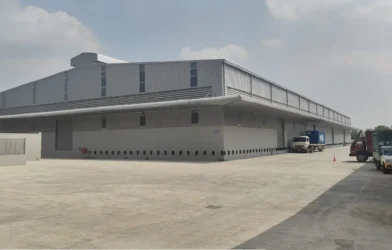Subtotal ₹0.00
The Central Board of Direct Taxes (CBDT) has unveiled a new standard operating procedure (SOP) aimed at plugging revenue leakages from real estate transactions involving joint development agreements (JDAs).
Issued through an office memorandum on September 15, the SOP lays down a structured, data-driven approach to monitoring capital gains by tapping into information available on Real Estate Regulatory Authority (RERA) and Housing Industry Regulation Act (HIRA) portals.
Officials have been directed to identify JDA-linked projects, cross-check ownership and transaction details with income tax filings, and issue summons where disclosures are missing or inaccurate. The move, piloted successfully by the Kolkata investigation wing, marks a shift from earlier reliance on chance information or third-party tips, and is designed to ensure systematic compliance and fair assessment of tax liabilities across the country.
All directorates have been asked to submit compliance reports by October 31, 2025.
Under the earlier framework, many landowners entering JDAs either failed to disclose capital gains in their tax returns or disclosed them in incorrect years. Since capital gains were taxable at the time of signing the JDA (even before receiving developed property or money), several taxpayers avoided reporting the liability altogether, creating gaps in collection. The absence of a structured mechanism meant the tax department often relied on chance information or third-party inputs to detect such cases.
To ease this hardship, the Finance Act, 2017 deferred the timing of taxation. Instead of paying capital gains tax when the JDA was signed, landowners would now be taxed only in the year when the competent authority issued a completion certificate for the project. This gave taxpayers relief, as the tax liability coincided with the time when they actually received possession of property or consideration. However, even after this change, many landowners either did not disclose capital gains or reported them inaccurately. The problem was that tax authorities had no direct access to data on JDA projects from state real estate regulators like RERA, making it difficult to systematically match projects with tax returns. As a result, several transactions slipped through without scrutiny, leading to leakage of revenue.
The new framework mandates officials to track JDA-linked projects through RERA and HIRA portals, match them with tax return filings and verify whether capital gains are properly disclosed. If discrepancies are found, summons can be issued to taxpayers to seek explanations and supporting evidence.
“The above method allowed the investigation directorate to proactively identify cases of non-compliance rather than relying on chance or third-party information,” the CBDT said in the memorandum.
In cases where RERA websites do not carry sufficient details, directorates have been advised to obtain JDA-related data directly from state regulators or development authorities.
The new system “establishes a clear, systematic, and data-driven framework to ensure that eligible cases are assessed and tax revenue is secured efficiently and fairly nationwide, while following a non-intrusive and transparent manner,” it stated.














